2013.08.07
USAF chopper crash stirs Okinawans
The crash of a U.S. Air Force helicopter Monday on Camp Hansen in northeastern Okinawa has stirred Okinawans, who are again calling American aircraft as being too dangerous to be on the island.
The afternoon crash of an HH-60 Blackhawk helicopter belonging to the 18th Wing at Kadena Air Base is being investigated by both Okinawan Prefecture Police and the U.S. military. No casualties among local residents from the accident have been reported, officials of the Okinawa Prefectural Police Department said.
The U.S. said that the helicopter, carrying four crewmembers, was on a training flight. Three of the four were injured in the accident, but are “in stable condition” while the body of the fourth crewmember was retrieved from the crash site on Tuesday.
Black smoke was spotted in Camp Hansen around 4:05 p.m. and turned white around 5 p.m., said officials of the village of Ginoza, one of the municipalities that host the camp. A police helicopter discovered the burning remains of the U.S. chopper around 5:40 p.m. Camp Hansen is located some 2 kilometers north of the Ginoza municipal government office.
The accident is expected to fuel anger among local communities with U.S. military bases in the southernmost Japan prefecture. It occurred just two days after the Marine Corps began the deployment of 12 additional MV-22 Osprey tilt-rotor transport aircraft at the Futenma Marine Corps Air Station in the prefecture amid local protests. Two of the 12 Ospreys have already been transferred to the Futenma base. Following the accident, the Marine Corps said it has decided to postpone the deployment of the 10 other Ospreys.
The accident is “very regrettable,” Japanese Defense Minister Itsunori Onodera told reporters. He said the Japanese government has filed a complaint with the command of U.S. forces in Japan, demanding a thorough investigation and preventive measures. Instructed by Chief Cabinet Secretary Yoshihide Suga, the Foreign Ministry requested the U.S. side to investigate the incident thoroughly. Vice Foreign Minister Akitaka Saiki told reporters that Japan wants the United States to conduct an intensive investigation to find the cause of the accident.
When Japanese Foreign Minister Fumio Kishida called U.S. Ambassador to Japan John Roos and expressed his deep regret, Roos said the United States will sincerely accept Japan’s requests, according to Japanese officials. The United States will thoroughly investigate the incident and give information to Japan, Roos was quoted as saying. Kurt Tong, deputy chief of mission at the U.S. embassy in Tokyo, told Koji Tomita, director-general of the Japanese ministry’s North American Affairs Bureau, over the phone that the United States takes the incident seriously, according to ministry officials.
Shigeru Ishiba, secretary-general of Japan’s ruling Liberal Democratic Party, told reporters in Osaka that such an accident in Japanese territory is a very grave matter. The Japanese government has to swiftly work to identify the cause of the accident, he said. Since the 1972 Okinawa reversion to Japan, the prefecture saw a total 45 cases of U.S. military aircraft or helicopter crashes including the latest one, according to the prefecture.
In August 2004, a CH-53 large transport helicopter of the Marine Corps crashed into a university building near the Futenma base, injuring three Marines and damaging nearby houses and vehicles but causing no casualties among residents. In April 1999, another CH-53 helicopter crashed in the north of the Okinawa main island during nighttime training, leaving four crew members dead. In June 1959, when Okinawa was still under U.S. occupation, a fighter jet crashed into an elementary school in the city of Uruma, called Ishikawa at the time, killing 17 people including 11 children and injuring more than 200.
The U.S. military is set to investigate the latest crash of the HH-60 Black Hawk. The Okinawa prefectural government and the local police cannot enter the premises of U.S. bases in the prefecture without permission from the U.S. military.The United States intends to work in cooperation with the Japanese government in preventing any spread of impacts of a U.S. military helicopter crash in Okinawa on issues related U.S. bases in the southernmost Japan prefecture, according to Department of State spokeswoman Marie Harf.
“Our relationship with the government of Japan is a very close one, and we will continue to work together on a variety of issues,” Harf said at a press conference. Harf said that details of the accident will be announced in the near future, but she refrained from commenting on specific issues for which opposition in Okinawa is strong, such as the relocation of the U.S. Marine Corps’ Futenma air station and the deployment of additional MV-22 Osprey tilt-rotor military transport aircraft.
The U.S. and Japanese governments have agreed to relocate e Futenma, now in a crowded area of Ginowan City, to the Henoko coastal district of Nago City despite strong opposition from local communities. The Marine Corps plans to deploy a total of 24 Ospreys at Futenma. Twelve Ospreys were transferred to the base last October, and 12 more arrived at the Marines’ Iwakuni base in Yamaguchi Prefecture, western Japan, in late July ahead of deployment at the Futenma base. Two of the additional Ospreys were deployed there Saturday.
The U.S. government has been increasingly hoping for progress in the Futenma relocation issue, believing that Japanese Prime Minister Shinzo Abe was able to stabilize the foundations of his administration after the ruling coalition led by his Liberal Democratic Party won the July 21 House of Councillors election, a development that brought an end to the country’s divided parliament. Washington is now worried that the helicopter crash could negatively affect the Japanese government’s work to obtain Okinawa Governor Hirokazu Nakaima’s permission for a landfill in the Henoko area, which is necessary for the construction of a replacement facility to Futenma base.
-
Rich
-
CarbonRyda
-

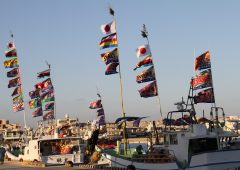 2024.02.07
2024.02.07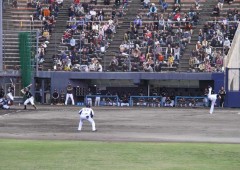 2024.01.31
2024.01.31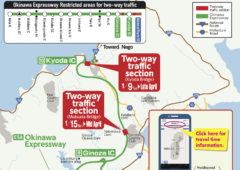 2023.12.11
2023.12.11 2023.11.02
2023.11.02 2023.10.26
2023.10.26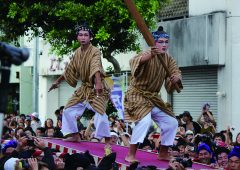 2023.09.29
2023.09.29 2023.09.01
2023.09.01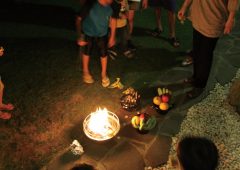 2023.08.22
2023.08.22 2023.08.15
2023.08.15 2023.07.27
2023.07.27






